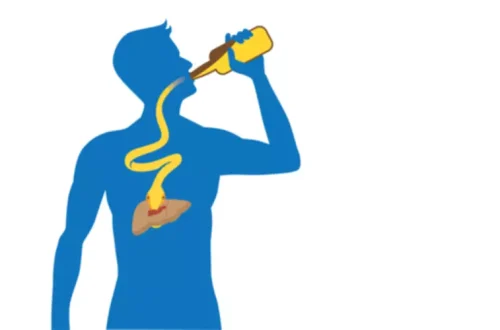
It’s important to note that while these factors can increase an individual’s risk for developing alcoholism, they do not necessarily guarantee it. Many individuals with a family history of alcoholism or who have experienced traumatic events never develop problematic drinking patterns. While the stages of alcoholism are important to understand, it is also crucial to recognize the underlying causes of this disease. Alcoholism can be caused by a combination of genetic and environmental factors. Family and friends can play a crucial role in helping individuals with alcoholism seek and maintain treatment.
Co-occurring Mental Health Disorders in End Stage Alcoholism
A person with severe AUD will almost always experience symptoms of withdrawal when the alcohol in their body begins to wear off. With advanced-stage alcohol misuse, a person’s body may feel as though it physically needs alcohol in order to function as it usually would. To find another treatment program, browse the top-rated addiction treatment facilities in each state by visiting our homepage, or by viewing the SAMHSA Treatment Services Locator.
Physical and Psychological Effects
Instead of feeling ashamed or guilty about these experiences, individuals should focus on learning from them and continuing to move forward towards their goals. One essential step in maintaining sobriety is to build a strong support system. Having individuals who understand the challenges of recovery and offer encouragement and accountability can be incredibly helpful. Alcohol is a depressant that can worsen symptoms of depression, making it more challenging for individuals to cope with their emotions. Moreover, individuals with depression may turn to alcohol as a way to self-medicate, which can lead to a vicious cycle of drinking and worsening depression. Support group meetings, such as Alcoholics Anonymous (AA) or Narcotics Anonymous (NA), can provide individuals with ongoing support and accountability in recovery.
Counseling and Therapy
It is essential for those struggling with AUD to seek professional help, as chronic alcoholism can lead to a cycle of addiction that is difficult to break without proper intervention and support. Signs of AUD include a strong craving for alcohol, loss of control over alcohol intake, withdrawal symptoms upon cessation and a tolerance that leads to increased consumption. five stages of drinking The National Institute on Alcohol Abuse and Alcoholism (NIAAA) reports that in 2021, 28.6 million adults in the United States had AUD, highlighting its significant prevalence. People used to refer to alcohol use disorder as alcoholism, and the people with it as alcoholics. Experts have increasingly seen these terms as negative and unhelpful labels.
Discover how Vivitrol transforms lives in addiction treatment. Uncover its benefits and how it’s changing the game.
This is why detoxing should be done with a medical professional’s supervision at an addiction treatment center. Your health may decline rapidly, as your essential organs become compromised. Drinking now becomes a relentless necessity, done to stave off severe withdrawal symptoms.
- The pancreas also suffers, as alcohol induces the production of toxic substances, leading to pancreatitis, a painful and potentially life-threatening condition.
- For those who need help right away, WebMD Connect to Care specialists are standing by to get you started on the road to recovery today.
- Residential treatment programs are often recommended for serious cases of AUD, providing an immersive environment for recovery.
- It is common for their loved ones to notice yellowing of the eyes and skin as their liver begins to deteriorate.
Treating Alcohol Addiction at The Recovery Village Palmer Lake
Alcohol addiction is characterized by a physical and psychological need to drink. Jellinek viewed alcoholism as a chronic relapsing condition that needed to be treated by health professionals and developed a theory on the progression of alcoholism through various stages. Inpatient treatment takes place at a licensed residential treatment center. You’ll live in safe, substance-free housing and have access to professional medical monitoring.

Many people stay in this stage their whole lives and never progress, but most of those who eventually develop an alcohol use disorder begin here. The pre-alcoholic stage marks the early period during which a person starts to engage in drinking. During this stage, alcohol consumption is typically moderate and infrequent, often in social or celebratory settings. Encouragement to seek treatment and engage in rehabilitation is a fundamental part of recovery from alcoholism.
- This stage is often characterized by sobriety, self-awareness, and positive changes with the goal of long-term recovery.
- Financial distress from job losses and loneliness due to damaged relationships are also prevalent in this phase.
- One of the most significant health complications is alcoholic liver disease or cirrhosis, where the liver’s ability to function properly is compromised, leading to the accumulation of toxins in the body.
- Drinking at this point isn’t about feeling good — it’s about not feeling bad and avoiding the uncomfortable sensations that accompany acute withdrawal.
- We have inpatient and outpatient facilities nearby and across the country ready to help.
Stages of Alcoholism: Early, Chronic, and End Stage

This stage is marked by a pattern of compulsive alcohol use, a loss of control over drinking habits, and persistent negative emotional states when not consuming alcohol. The most destructive form of alcoholism is chronic alcoholism, an emotionally, socially and physically devastating disease. Alcoholism emerges from alcohol abuse, when there’s a pattern of drinking despite negative consequences.

Save 10% on addiction treatment
Ultimately, the most effective treatment plan will depend on the individual’s unique needs and circumstances. It’s important to work closely with a healthcare professional to determine what type of treatment is best suited to one’s needs and goals. With the right combination of support, guidance, and resources, recovery from alcoholism is possible. CBT is a form of talk therapy that focuses on identifying and changing negative patterns of thinking and behavior.





Add comment